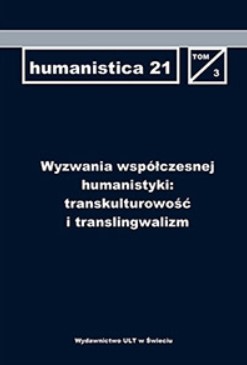Транслингвизм и проблемы обучения иностранному языку
Translingualism and problems of foreign language teaching
Author(s): Almagul Maimakova, Galina KadyrovaSubject(s): Foreign languages learning, Language acquisition, Eastern Slavic Languages, Sociology of Culture
Published by: Wydawnictwo ULT w Świeciu
Keywords: translingualism; transculturation; students repatriates; Russian; sociocultural approach;
Summary/Abstract: Translingualism, transculture are terms that are relatively new to Russian-speaking humanitarian thought. The etymology of these terms reveals their main message: the prefix trans- means 'over’, ‘above’, ‘through’, ‘on the other side’, reflects the intention to include not one, but several languages / cultures, their intersection. The issues of translingualism, transculturation, vitality/ viability of the language (Russian) to function as transnational, in some attempts by post-Soviet linguists to subject them to reflection and description are still outside the scope of current scientific and social debate. In particular, in the field of language teaching in the world today there is a transition to translingual teaching methods and the development of language multi-competence, but this issue for Kazakhstan and Russian applied linguistics remains almost terra incognita. This paper is an attempt to understand translingualism in the light of the problems of teaching a foreign language. In particular, this issue is considered on the example of teaching Russian as a general mandatory discipline to students repatriates studying in non-linguistic and humanitarian faculties of universities, including pedagogical ones. The repertoire of models of intercultural communication in different spheres of activity, including educational and scientific, taking into account the Kazakh language realities is presented. Using specific examples, with the assistance of language material reflecting the culture of Kazakhstan, Russia, and foreign countries from which repatriate students arrived, and through the use of interactive technologies shows that such training is considered as a component of multilingual language ability and has a great personality and developmental potential.
Journal: humanistica 21
- Issue Year: 3/2019
- Issue No: 3
- Page Range: 335-356
- Page Count: 22
- Language: Russian

